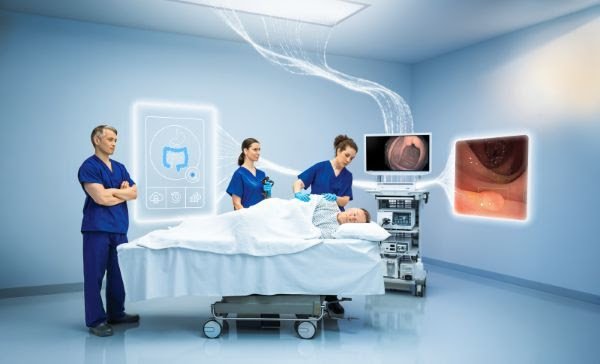
Japan-based medtech company Olympus Corporation has announced the commercial launch of its OLYSENSE™ CAD/AI (artificial intelligence-powered computer-aided detection) portfolio in the United States (US) and European markets.
This portfolio uses AI to enable earlier detection, enhance clinical outcomes, and ultimately improve patient care. In European markets, the launch includes the clinical applications CADDIE™, CADU™, and SMARTIBD™. In the United States, the launch includes CADDIE™ with detection capabilities only.
With more patients needing endoscopic evaluation due to demographic trends and ubiquitous lower and upper gastrointestinal conditions, demand for procedures continues to rise. Yet gastroenterologists must manage heightened workloads, administrative burdens, budget constraints, and staff shortages. AI-based and data-driven solutions offer opportunities to address these demands, supporting efficient screening, earlier diagnosis, and helping care teams focus on appropriate treatment and, potentially, better outcomes.
Olympus has introduced OLYSENSE CAD/AI - a suite of cloud-based, AI-powered apps, marking the first step in its intelligent endoscopy ecosystem. These apps support clinicians in detecting, characterising, and analysing lesions throughout the upper and lower gastrointestinal (GI) tract.
In Europe, CADDIE, CADU, and SMARTIBD each received CE Mark certification under the EU-MDR (July 2024), with CADDIE covering both computer-aided detection (CADe) and diagnosis (CADx) of suspected colorectal polyps.
In the United States, the CADDIE computer-aided detection device received Food and Drug Administration (FDA) 510(k) clearance (July 2024) to assist gastroenterologists in detecting suspected colorectal polyps during colonoscopy procedures. CADDIE is available in the US with only polyp detection and excludes polyp characterization features. SMARTIBD and CADU are not available in the US.




